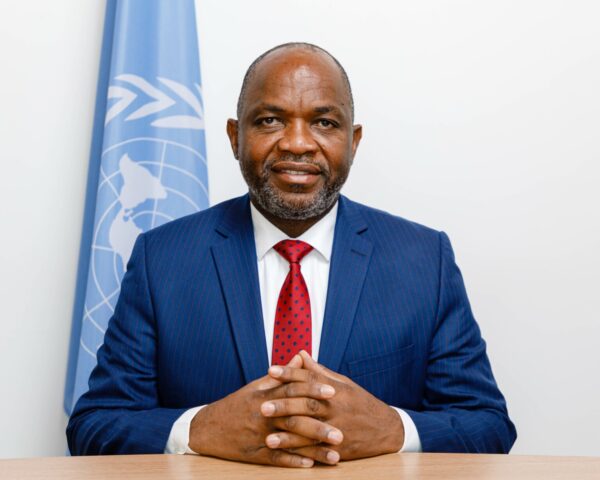by Dr. Maxime Houinato, Socio-Economist and UN Women Regional Director for West and Central Africa
The African Union’s permanent membership in the G20, alongside South Africa, marks a milestone for the continent. It offers a new platform to influence global decisions and align them with Africa’s priorities. The value of this representation will be measured by tangible results for women and girls — particularly in West and Central Africa, where women drive economic resilience, social cohesion, and innovation.
The G20 influences more than 80 percent of global GDP and most of international trade. Its agenda on finance, climate action, digital transformation, and employment directly affects Africa’s future. With the African Union at the table, Africa can help shape these priorities and ensure that global governance reflects its realities. For gender equality, this moment provides an opportunity to advance both the 2030 Agenda and Africa’s Agenda 2063 through coordinated regional action.Three priority areas for transformation:
Three priority areas for transformation
1. Financing women’s economic empowerment
Across West and Central Africa, women make up more than 60 percent of the informal workforce but remain underfinanced. Gender-responsive budgeting, targeted credit lines, and investment in women-led enterprises are producing encouraging results in several countries. An AU–G20 Gender Financing Compact could expand these efforts — strengthening the care economy, supporting cross-border traders, and creating financing models that reach women from all walks of life.
2. Digital inclusion and innovation
The gender digital divide remains among the widest in the world. Women entrepreneurs across the region are active in agritech, services, and e-commerce but face persistent barriers to connectivity, digital literacy, and capital. Building on collaborations with Smart Africa, ECOWAS, and the UN Economic Commission for Africa, a Gender Digital Compact would focus on three core areas: access, skills, and financing. UN Women’s African Girls Can Code initiative already provides a strong foundation for such an approach.
3. Women, Peace and Security and climate resilience
The Sahel and the Congo Basin show how peace, security, and climate change are connected. Women play a critical role in prevention, mediation, and adaptation. As the G20 advances work on resilience and conflict prevention, integrating Women, Peace and Security into economic and climate policy can enhance both accountability and impact. The 25th anniversary of UN Security Council Resolution 1325 in 2025 offers an opportunity to ensure this connection is reflected in national and regional policies.
From policy to implementation: UN Women’s role
UN Women supports this agenda at three levels. At the continental level, we work with the African Union’s Gender Directorate and G20 Sherpa Office to integrate gender equality into the Union’s G20 policy priorities. At the regional level, our West and Central Africa Office convenes governments, ECOWAS, ECCAS, civil society, and the private sector to align evidence, financing, and action around common goals. At the national level, partnerships with ministries responsible for gender, finance, and digital development are translating these frameworks into national budgets, entrepreneurship programmes, and gender-responsive public policies.
Building bridges for gender equality
Africa’s presence in the G20 creates three opportunities for women and girls:
Inclusion. Women from every part of the continent, including the Sahel and the Congo Basin, should have a seat and a voice in global decision-making.
Investment. More resources can strengthen care systems, support green and digital businesses, and expand women-led recovery efforts.
Influence. Africa’s gender strategies and funds, such as ECOWAS’s Regional Gender Strategy and the AU Women’s Fund, can help shape global norms on inclusive growth.
The call for a feminist G20-Africa compact
The next frontier of global governance must be feminist, inclusive and African-led. South Africa’s G20 presidency and the African Union’s permanent membership make this a defining moment for Africa’s global engagement. UN Women will continue working with the AU, South Africa, and regional partners to ensure that this new global voice advances gender equality and delivers measurable results for women and girls. When Africa speaks, the world listens, and when Africa’s women lead, the world changes.


